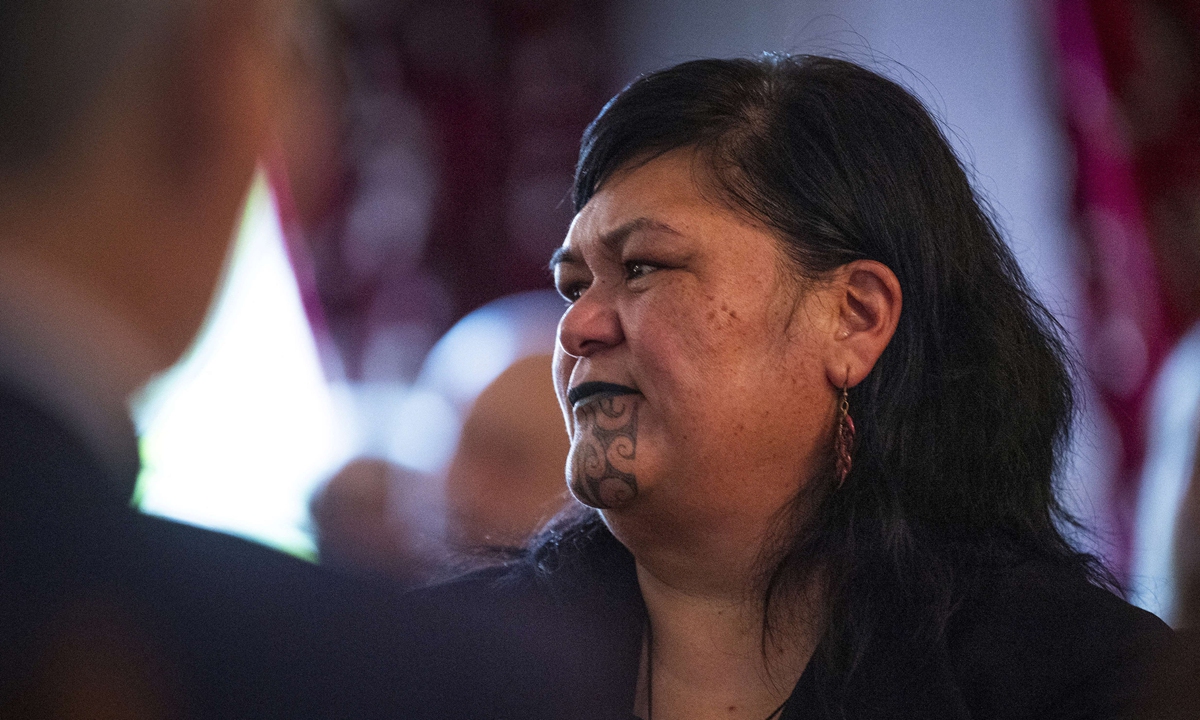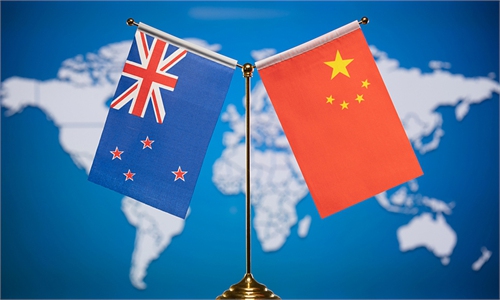Washington the one undermining Five Eyes solidarity

New Zealand's Foreign Minister Nanaia Mahuta (C) attend a cabinet meeting at the Parliament House in Wellington on November 6, 2020. Photo: AFP
New Zealand is opposed to the Five Eyes alliance's expand its remit and take positions on issues such as China's human rights record, New Zealand's Foreign Minister Nanaia Mahuta said on Monday. She also said Wellington will not provoke or engage with China through the Five Eyes alliance apart from intelligence matters.Following Mahuta's remarks, New Zealand Prime Minister Jacinda Ardern dismissed the claim that her country was sending a signal to China that New Zealand was not "one" with its Five Eyes partners on issues of democracy and human rights. She said instead that New Zealand just believed that the Five Eyes group was not the best platform to deliver those messages.
Mahuta's remarks show Wellington is pragmatic, and has a clear knowledge of the issue. New Zealand is also a member of the West and may have different views on human rights from China. However, New Zealand believes that it is reasonable to raise questions, but it is inappropriate to for the US to build up the Five Eyes alliance into a joint anti-China mechanism.
Washington is purely using "human rights" as a cover to suppress and contain Beijing with its allies. The US now sees everything in terms of competition with China, which is very different from New Zealand. Wellington believes that containing Beijing is not beneficial to its national interests. It will be vain to follow the US' lead. Nor does Wellington want its moves and narratives to be hijacked by wily Washington.
The New Zealand foreign minister's remarks also serve as a reminder to the other three members that the Five Eyes alliance itself is merely an intelligence-sharing mechanism. Now the US, for its own needs, especially for containing China's development, has expanded the contents of the cooperation among the five countries. It wants to intimidate its members to go along with its anti-China activities. If they indulge the US in doing so, the three countries' relations with China will be fully mastered by the US. This is definitely not the result they want to see.
New Zealand's foreign policy, particularly its China policy, differs from the other four members of the Five Eyes. It has to do with how Wellington positions itself. New Zealand has no great geopolitical ambitions. Instead, the country is pragmatic in pursuing its own interests.
There are some noises saying New Zealand is undermining the solidarity of the Five Eyes. This reflects the domineering side of Washington. According to its logic, following the US is to maintain the unity of the alliance. Otherwise, it is to destroy the solidarity.
The one which impairs the solidarity of the alliance is Washington, which forces other Five Eyes members to join its anti-Beijing chariot. If these countries disagree, they may encounter suppressions from the US. This will increase tensions within the alliance.
The Five Eyes is merely an intelligence-sharing alliance. The US now wants other members of the alliance to join the boycott of Huawei, as well as to take a stand on China's so-called human rights issues in Xinjiang and Hong Kong. It is not what an intelligence-sharing alliance should do. Mahuta's narrative is actually an attempt to return the alliance to its original position. Wellington does not refuse to share intelligence, but it disagrees with Washington's desire to steer the Five Eye in the direction it wants to go.
Although New Zealand sometimes expresses ideas different from other members of the Five Eyes, especially when it comes to China, this country is unlikely to exit from this alliance in the short-run. But in regard to matters of national interest, Wellington tends to be independent and persistent.
The US is reluctant to see New Zealand's withdraw from the Five Eyes. When the US attempts to pursue Five Eyes' expansion, New Zealand's quitting would be negative for the US' plans and designs for the alliance. It is expected the US will, to some extent, appease and rope in New Zealand instead of strong arm it.
As a response to US' attempts to expand Five Eyes, Japan has expressed its intent to become the "sixth eye" of the alliance. The Five Eyes is traditionally an alliance consisting of five "Anglo-Saxon" countries. From the perspective of ethnicity, it will be difficult for members of the alliance to accept Japan. Furthermore, even if Tokyo is not a member of the Five Eyes alliance, this country will proactively cooperate with Washington's policy. The US will not receive much more gains because Japan becomes a member of the intelligence-sharing alliance. Therefore, Washington may not approve of Japan's membership.
The author is a professor at the Guangdong Research Institute for International Strategies. opinion@globaltimes.com.cn


